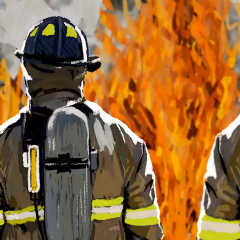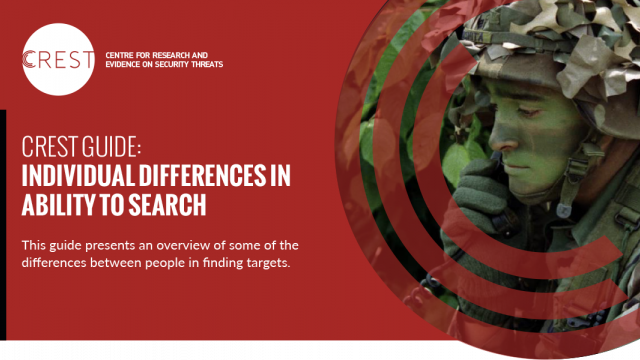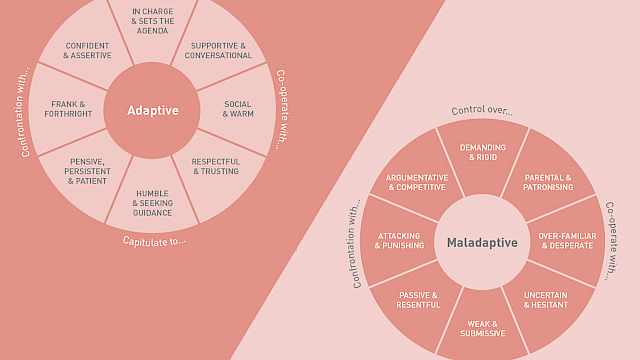Major incidents often occur without warning, placing public safety and national security at risk. Incidents such as terrorist attacks (e.g. Brussels, Paris), earthquakes (e.g. Afghanistan, Sumatra) and floods (e.g. Ethiopia, Malaysia) result in thousands of deaths and have a huge economic impact. Changes in the environment and global warming are predicted to further increase the prevalence of such incidents. Managing them effectively is essential for saving lives, reducing risk to public safety, and returning the environment back to ‘business as usual’ as soon as possible.
In the UK a major incident is defined as “any emergency that requires the implementation of special arrangements by one or more of the emergency services, the NHS or local authority”. These special arrangements are usually required due to the large numbers of people who need to be rescued, treated, or have become displaced from their homes, and the large numbers of enquiries generated by the public and media.
In the UK a major incident is defined as “any emergency that requires the implementation of special arrangements by one or more of the emergency services, the NHS or local authority.
When a major incident occurs, emergency services and other associated agencies must work together under a three-tiered hierarchical command structure. Decisions are fed down from Strategic Commanders (responsible for setting overall strategic objectives and agency contributions) to Tactical Commanders (setting the operational boundaries for using the resources available) and finally to Operational Commanders (translating tactics into actions to resolve the incident).
Agencies invest significant levels of resources to resolve incidents, potentially over prolonged periods of time (e.g. the Bosley Mill explosion required emergency service resources for more than 30 days).
Various factors place key decision-makers under severe pressure. It is necessary to move away from thinking founded on the use of available information to using heuristic models of thinking, or ‘rules of thumb’, in order to simplify complex problems.
Decision-makers often exhibit ‘decision inertia’ – resulting in failures to act in time (or at all). When decision-makers have a wealth of experience and expertise, heuristic models can be effective in helping to make decisions quickly, with limited information. However, the rarity and uniqueness of each major incident make it difficult to develop this level of expertise. In particular, the following features can impact on decision-making:
Four main factors
Time PressureUnder severe time pressure, people do not have the time to take a ‘rational’ and comprehensive approach to decision-making.
Information Underload and Overload
Too much information can be overwhelming, but a lack of information can lead to an inaccurate assessment of the problem.
Risk and Uncertainty
Risk and uncertainty can lead to decision avoidance due to our motivation to avoid unpleasant emotions such as regret (sorrow for losses).
Accountability
Being responsible for decision-making can lead to cognitive load by considering too much information and the overwhelming need to protect ourselves.
Time Pressure
Major incidents are often characterised by time pressure because decisions must be made quickly in order to save lives and to prevent further casualties. Under severe time pressure, people do not have the time to take a ‘rational’ and comprehensive approach to decision-making. That is, they are unable to identify a number of different options and then assess each option in order to identify the one that is most likely to achieve an effective outcome. Time constraints can also prevent people from being able to weigh up the different pieces of information available in order to build a more comprehensive and accurate assessment of the type of problem they are dealing with.
Overall, this can result in decisions being based on an inaccurate assessment of the situation, and an inadequate evaluation of the options available.
In contrast, an absence of time boundaries can also have a negative impact on decision-making by lowering the perceived need to commit to decisions within a particular time period, which may allow a situation to escalate. Setting deadlines can improve motivation and encourage agencies to coordinate their goals, actions, and priorities within a shared timeframe. This is important in major incidents because emergency services must coordinate their management of the incident.
Within time-pressured situations, experience and expertise allow Commanders to make decisions rapidly through a process of pattern matching, in which they are able to quickly identify a successful solution they previously used in a similar situation. However, this type of strategy is reliant upon having dealt with a large number of similar incidents before in order to be able to draw on a bank of previous situations, along with the actions that worked.
Information Underload and Overload
Within major incidents, particularly during the early phases, there can be an excess of information available. This creates challenges for Commanders who must make sense of this information and use it to inform decisions. People have a limited cognitive capacity; we are only able to process a limited amount of information at once. When faced with large amounts of information, we can become overwhelmed, further reducing cognitive capacity and making it difficult to prioritise which information is most relevant.
Experience and expertise are useful for reducing cognitive load by allowing Commanders to quickly identify the pieces of information that are most important to focus on and those that are less relevant.
Conversely, having insufficient information (or information underload) also creates challenges for decision-making, as Commanders are unable to develop an accurate assessment of the type of problem they are dealing with. This can lead to decision avoidance – seeking to delay making a decision until more information becomes available.
Sometimes more information may not be forthcoming and delaying decision-making runs the risk of allowing the situation to escalate.
Although considering all of the relevant factors and information available can provide a strong basis for making decisions, the amount of time spent collecting this information may be better directed at considering alternatives or putting a decision into action. Sometimes more information may not be forthcoming and delaying decision-making runs the risk of allowing the situation to escalate. Lack of information can also lead people to select familiar options or to revert to habit rather than identifying novel solutions for dealing with a unique situation.
Risk and Uncertainty
Uncertainty refers to dealing with possible outcomes that are unknown. For example, major incidents can be characterised by uncertainty about what type of incident one is dealing with, how this incident might change, how a Commander’s actions might impact on the incident, how reliable the information being received is, and how actions might be viewed by others. Risk refers to uncertainty when there is a real possibility to incur losses. For example, major incidents are characterised in term of risk to the lives of casualties, the risk to the wider public, the risk to emergency service responders’ safety, and risk to personal and organisational reputation.
Similar to information underload, uncertainty can cause Commanders to delay making decisions until more information becomes available. Further, risk can also lead to decision avoidance due to our motivation to avoid unpleasant emotions such as regret (sorrow for losses). Although this motivation helps us to learn from past mistakes, there is a tendency to associate more regret with actions rather than failure to act. Trying to avoid regret can therefore sometimes lead to decision avoidance as people seek to avoid committing to actions in an attempt to minimise experiencing regret.
Experience can be useful, allowing Commanders to make better sense of limited information by drawing on their previous experiences of dealing with similar situations to ‘fill in the blanks’. This can then be used to identify decisions and strategies that need to be put in place in order to secure more information or to ensure that actions are being taken, in the interim, to prevent the situation from escalating until a time when further information becomes available.
Accountability
Accountability refers to the process of having performance assessed by an audience or audiences with the power to reward or punish based on their appraisals. The purpose of accountability is to encourage people to make more careful and considered decisions in order to improve performance. However, under certain conditions, accountability can also have a negative impact on decision-making.
Accountability encourages people to take more information into consideration when making decisions. However, given limits in cognitive capacity, accountability can lead to cognitive load as people try to consider too much information without discriminating between relevant and irrelevant details. Accountability can also encourage people to become motivated to protect themselves.
Limited cognitive capacity becomes directed away from focusing on the incident to focusing on how other people might view actions in the future and how related punishment can be avoided.
Experience can enable Commanders to develop strategies for managing accountability pressures and for developing confidence in their own decision-making abilities so that they feel comfortable and secure in justifying their rationale for taking actions.
What factors affect command decision-making and why?
Overall, there are various ways in which features of major incident environments can negatively impact on decision-making. However, there are strategies that can be put in place to mitigate these challenges. For example, developing experience and expertise is useful for improving decision-making for a variety of reasons, including learning how to utilise limited cognitive resources more efficiently and effectively.
Whilst Commanders are unlikely to be able to gain first-hand experience of managing the number of real major incidents required to develop expertise, training exercises and simulations are useful tools for gaining experience and receiving timely feedback in order to improve performance.
Other strategies include ensuring clear goals and deadlines are set in order to encourage Commanders to remain focused and working toward achieving shared objectives.
Based on debriefs of real incidents, evaluations of live exercises, and assessments of decision-makers during mental rehearsal tasks it is possible to list a number of features that mitigate against the effects of time pressure, risk, and accountability.

Awareness-raising about the concept of ‘decision inertia’: Inertia comes as a consequence of not wanting to accept the least-worst option and decision-makers sometimes do not want to accept a bad outcome (even if it is less bad than the alternative). Allowing decision-makers to accept the concept of non-optimality can reduce inertia and enable them to tolerate outcomes – even if they are less than ideal.
Goal-focused thinking on macro and sub-goals rather than decisions can reduce inertia. Rather than deciding to do action X, one should think “What is my goal here?” and then, based on that formulate what decisions or choices are more or less likely to achieve that goal. For example, one could decide to buy a small cottage in the countryside rather than a flat in a big city, and then seek to rationalise that decision. Instead one should ask “What is my main goal in terms of where I want to live?” Perhaps it is to be closer to family but still able to enjoy relaxing in the countryside on a regular basis. With that goal in mind, one should look at properties that get one nearer to that goal rather than focus on a choice between the flat and the cottage.
Deliberate and clear practise with well-structured feedback is a key feature of improving performance. We have begun to understand how much practise is required for different sorts of thinking tasks and the types of training that best suit each (sometimes these are very low-resource and others require large-scale live exercises). The point is to make practise and feedback frequent enough to make many aspects of decision-making quicker, more efficient, and more creative.
Read more
- Alison, L., Power, N., van den Heuvel, C., & Waring, S. (2015). A taxonomy of endogenous and exogenous uncertainty in high-risk, high-impact contexts. Journal of Applied Psychology, 100(4), 1309-1318.
- Alison, L., Doran, B., Long, M., Power, N., & Humphrey, A. (2013). The effects of subjective time pressure and individual differences on hypothesis generation and action prioritisation in police investigations. Journal of Experimental Psychology: Applied, 19(1), 83-93.
- House, A., Power, N., Alison, L. (2013). A systematic review of the potential hurdles of interoperability to the emergency services in major incidents: recommendations for solutions and alternatives. Cognition, Technology & Work, 16(3), 319-335.
- Waring, S., Alison, L., Cunningham, S., & Whitfield, K. (2013). The impact of accountability on motivational goals and the quality of advice provided in crisis negotiations. Psychology, Public Policy, & Law, 19(2), 137-150.
- van den Heuvel, C., Alison, L., & Crego, J. (2012). How uncertainty and accountability can derail strategic ‘save life’ decisions in counter-terrorism simulations: A descriptive model of choice deferral and omission bias. Journal of Behavioral Decision-making, 25, 165-187.
- van den Heuvel, C., Alison, L., & Power, N. (2012). Coping with uncertainty: police strategies for resilient decision-making and action implementation. Cognition, Technology & Work, 16(1), 25-45.
- Alison, L., Eyre, M., & Humann, M. (2010). Losing sight of the golden mean: Accountogenic decisions in U.K. policing. In K. Mosier & U. Fischer (Eds.), Knowledge: Expert performance in complex situations (pp. 275-294). New York: Taylor & Francis.
Copyright Information
As part of CREST’s commitment to open access research, this text is available under a Creative Commons BY-NC-SA 4.0 licence. Please refer to our Copyright page for full details.
IMAGE CREDITS: Copyright ©2024 R. Stevens / CREST (CC BY-SA 4.0)






